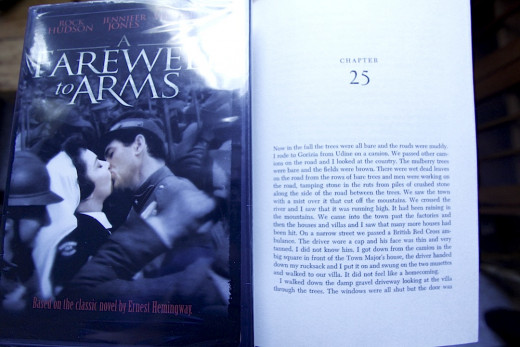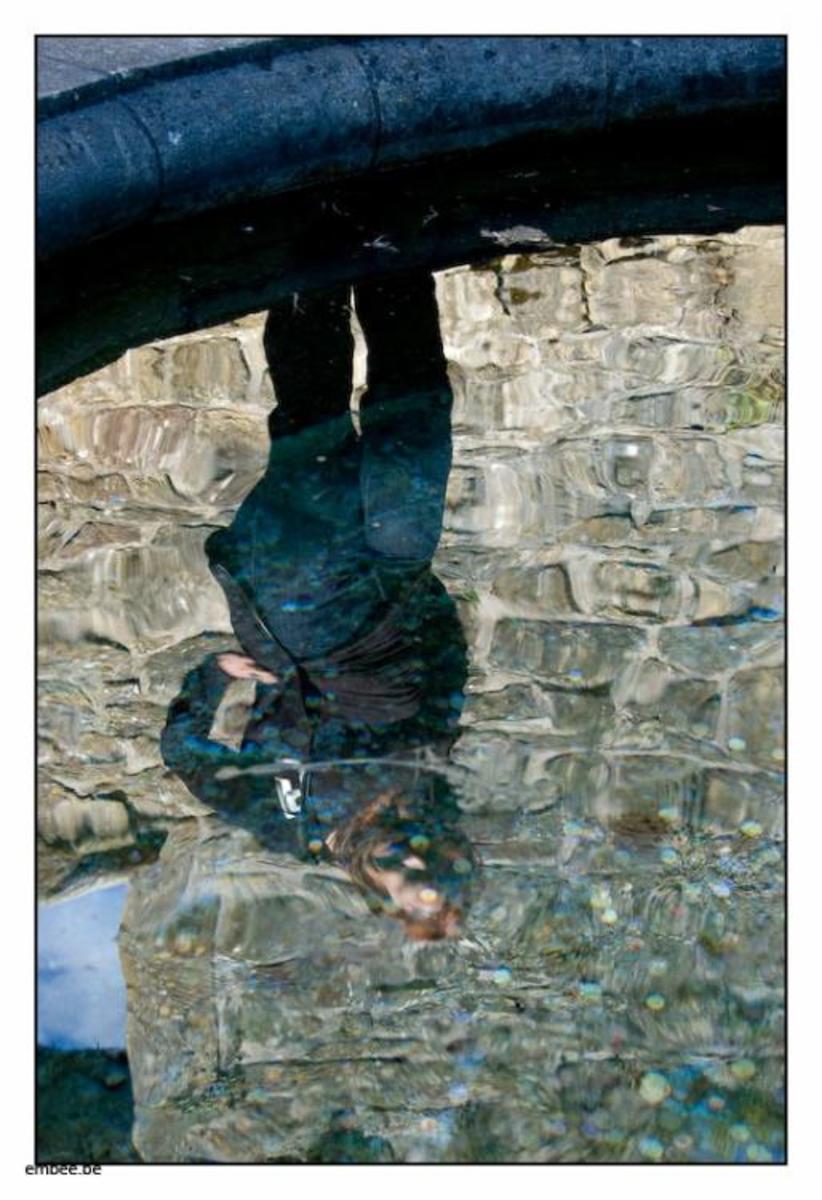A Farewell to Arms in print and on film

what is it good for?
A Farewell to Arms is a great novel and a significant movie, twice over. Almost a hundred years has passed since the events upon which it was written and filmed took place. There are any number of topics this cultural artifact touches on that can be discussed at great length. One has to do with how people simply go on living during a war, and this is something today's populations will get more and more acclimated to. Unless we are being lied to, it seems apparent that there is and has been for quite some time no let up in the acute level of hostilities round the globe. Regardless of how these actions unfold, and the likelihood of them turning fiercer appears inevitable, everyday life will somehow continue.
At least that is the impression one gets reading the rich decor of details, gleaned from observations, no doubt, spread throughout the novel. The light shelling of Gorizia, the Italian town being fought over, is mentioned in print and in the voice-over narrative of the film. The Austrians do not want to destroy it; if they are victorious, they will be living there after the war. There are other crisp descriptions that are hard not to like. The two different ways to eat spaghetti, for instance. Or the gray color of coffee sweetened with condensed milk. Or cigarettes called Macedonias that are loosely-packed. Movies are a powerful medium, apt to pull one in to no small degree, if the viewer is willing; this novel has the same magic. There is something about the way these characters are presented that gets the reader involved.
As it turns out, A Farewell to Arms is, in addition to the first world war, a story of a romance that grows, glows, and then goes away. The lovers, then married couple, make it to Switzerland, always a good omen in times of armed conflict, but it is the operating table and the drama of childbirth that steals the scene. Realism in literature is its own worst enemy. If great things vanish in a puff of smoke, why prolong the agony by putting it in print or tossing it up on a screen? All one has to do to experience the meanness of reality is to exist. War, on the other hand, which otherwise would be the ultimate in terms of lived realism, not just a style, is subject to the greatest twists and turns of manipulation imaginable. The endings are the most unbelievable. The idea that a defeated army loses all its ideals and influence is unacceptable. Or that the victors will have their way for an eternity. But the human heart has to return to that business of everyday living. And so it is best to think for everyone's sake that it was all a dream, if a terrible nightmare.
In sections of A Farewell to Arms, characters discuss the various countries in combat, and of course it makes for more scintillating details and conversation. Why did Germany declare war on the United States but not Austria? How about Turkey, Japan, and Bulgaria? No one seems to understand the Tenente Frederic Henry, the lead character, when he tries to make a joke out of turkeys being America's national bird. He is a long way from home, this writer-ambulance driver, played by Rock Hudson in the second version (1957), but he pauses at least once to note that the White Sox won the American League. It is easy to understand the Tenente's friend Rinaldi, who says that "the war is killing me." Eventually, it does.
Aside from these few components -- war, routines, repartee, and the various details of Europe from 1915 to 1918 -- there is the singular fact that the Tenente is having a terrific affair with Catherine Barkley, the English girl. She always says the right things. "I know you've been with all kinds of girls and it doesn't matter to me," for instance. The Tenente is "crazy about her." They give it their all, but the matter of a man and a woman and a child, which holds sway in fiction, whether told with words or images, does not fare well up against 420s and minnenwerfers -- terms having to do with guns. Is it all about shells and grenades? Maybe. But the main point in film, literature, or real life is that people have to go on living, and if they do, they will value highly the various elements of peace, not war, whether they know it or not.



